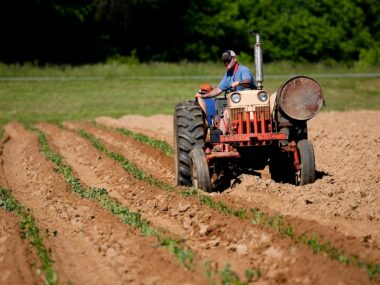The world relies on agriculture. It’s the bedrock of our food systems, economies, and even cultures. As the global population continues to grow and the challenges of climate change become more pressing, the field of agriculture is evolving rapidly, creating a wealth of exciting and diverse opportunities for those looking beyond their borders. If you have a passion for the land, a knack for problem-solving, or expertise in a specific agricultural area, then exploring international agriculture jobs could be the rewarding and impactful career path you’ve been searching for.
Why Consider International Agriculture?
Working in international agriculture offers a unique blend of professional growth and personal enrichment. Here are just a few compelling reasons to consider taking your agricultural skills global:
* Diverse Experiences: International roles expose you to different farming practices, climates, soil types, and agricultural systems. You’ll learn firsthand how agriculture is conducted in various cultural and economic contexts. Imagine working on a large-scale wheat farm in Australia, a sustainable coffee plantation in Colombia, or a cutting-edge research facility in the Netherlands.
* Addressing Global Challenges: Agriculture plays a crucial role in tackling global issues like food security, poverty reduction, and environmental sustainability. By working internationally, you can contribute directly to these vital efforts.
* Professional Development: International assignments often come with opportunities for significant professional growth. You might take on more responsibility, manage larger teams, or work with innovative technologies. Adapting to new environments and overcoming challenges in different cultural settings builds resilience and adaptability – highly valued skills in any field.
* Cultural Immersion: Living and working in a new country provides an unparalleled opportunity for cultural immersion. You’ll learn new languages, understand different perspectives, and build a global network of colleagues and friends.
* Making a Real Impact: Your skills and knowledge can make a tangible difference in communities around the world, helping to improve livelihoods, increase agricultural productivity, and promote sustainable practices.
The Landscape of International Agriculture Jobs:
The field of international agriculture is vast and encompasses a wide range of roles. Here are some key areas and examples of jobs you might find:
* Agronomy and Crop Science: These roles focus on optimizing crop production. Internationally, this could involve working as a Crop Consultant advising farmers on best practices in a developing country, a Plant Breeder developing climate-resilient varieties for a specific region, or a Precision Agriculture Specialist implementing technology-driven solutions on a large-scale international farm.
* Animal Science and Livestock Management: This area deals with the breeding, raising, and care of livestock. International opportunities include working as a Livestock Specialist improving animal health and productivity in a pastoral community, an Animal Nutritionist formulating feed for commercial farms in another country, or a Dairy Farm Manager overseeing operations on an international dairy enterprise.
* Agricultural Engineering and Technology: This field combines engineering principles with agricultural practices. International roles could involve being an Irrigation Engineer designing and implementing water management systems in arid regions, a Farm Machinery Specialist training farmers on the use and maintenance of equipment, or a Data Analyst using remote sensing and GIS to improve farm management on a global scale.
* Agribusiness and Agricultural Economics: These roles focus on the economic and business aspects of agriculture. Internationally, you might work as an Agricultural Commodity Trader, an Agribusiness Consultant advising international companies on market entry strategies, or a Value Chain Analyst improving the efficiency of agricultural supply chains in developing countries.
* Sustainable Agriculture and Environmental Management: With increasing focus on environmental sustainability, there are growing international opportunities in areas like Agroforestry, Conservation Agriculture, and Organic Farming. Roles could include working for NGOs promoting sustainable practices, researching the impact of climate change on agriculture, or implementing carbon sequestration projects on farmland.
* Agricultural Research and Development: International research institutions and organizations are constantly seeking scientists and researchers to address global agricultural challenges. This could involve working on projects related to crop improvement, pest and disease management, soil health, or climate adaptation.
* Agricultural Education and Extension: Sharing knowledge and building capacity is crucial for agricultural development. International roles in this area include working as an Agricultural Extension Officer training farmers on new techniques, a Vocational Agriculture Teacher in an international school, or a Capacity Building Specialist designing and implementing training programs for agricultural professionals.
* Policy and Advocacy: International organizations and governments require experts to develop and implement agricultural policies. Roles could involve working as a Policy Analyst focusing on food security at a global level or an Advocacy Officer promoting sustainable agricultural practices.
Finding International Agriculture Jobs:
Securing an international agriculture job requires a proactive and targeted approach. Here are some avenues to explore:
* International Organizations: Organizations like the Food and Agriculture Organization of the United Nations (FAO), the World Bank, and various international agricultural research centers (e.g., CGIAR centers) frequently have international job openings.
* Non-Governmental Organizations (NGOs): Many NGOs work on agricultural development and food security projects around the world. Organizations like Oxfam, CARE, and World Vision often have agriculture-related roles.
* Multinational Agribusiness Companies: Large agricultural companies that operate globally often have a range of international positions in areas like sales, marketing, research, and management.
* Government Agencies: Some government agencies in your home country or other nations have international development or agricultural liaison roles.
* Online Job Boards: Websites like LinkedIn, Indeed, and specialized international development job boards often list agriculture-related positions. Use keywords like “international agriculture,” “agronomy overseas,” or specific country names.
* Professional Networks: Connect with professionals in your field who have international experience. Networking at conferences and through online platforms can lead to valuable insights and opportunities.
* University Career Services: If you have an agricultural background, your university’s career services may have resources or connections related to international opportunities.
Key Skills and Qualifications:
While specific requirements will vary depending on the role, some common skills and qualifications that are highly valued in international agriculture include:
* Technical Expertise: A strong foundation in a specific agricultural discipline (e.g., agronomy, animal science, agricultural engineering).
* Adaptability and Resilience: The ability to thrive in new and sometimes challenging environments.
* Cross-Cultural Communication Skills: The ability to effectively communicate and collaborate with people from diverse cultural backgrounds.
* Language Proficiency: Fluency in English is often essential, and knowledge of other languages relevant to the region you’re interested in can be a significant advantage.
* Problem-Solving Skills: The ability to identify and address agricultural challenges in different contexts.
* Project Management Skills: Experience in planning, implementing, and monitoring agricultural projects.
* A Passion for Sustainable Development: An understanding of and commitment to environmentally and socially responsible agricultural practices.
Embarking on Your Global Agricultural Journey:
A career in international agriculture offers a unique opportunity to combine your passion for the field with a desire to make a global impact. By understanding the diverse range of roles available, actively searching for opportunities, and developing the necessary skills, you can cultivate a truly rewarding and meaningful career on the world stage. So, if you’re ready to broaden your horizons and contribute to feeding the world in a sustainable way, the world of international agriculture awaits!

